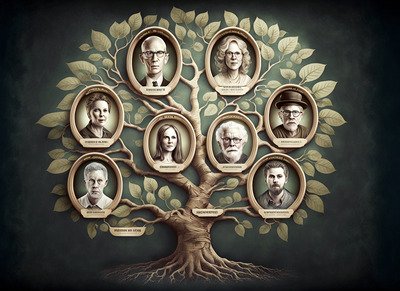Our Research Process
A Methodical Approach to Discovering Your Family’s Story
At Genealogy Insights, we follow a systematic and proven research process that ensures thorough investigation of your family history while maintaining the highest professional standards. Our methodology combines traditional genealogical techniques with modern research tools, allowing us to maximize efficiency while maintaining accuracy and reliability in our findings.
Under the guidance of Matthew Friend, each project receives meticulous attention to detail and benefits from his extensive expertise in genealogical research, particularly his specialized knowledge of West Virginia records and research methodologies. Our process is designed to be transparent and collaborative, keeping you informed and involved throughout the journey of discovering your family’s history.
Phase 1: Initial Consultation and Planning
Every successful research project begins with a thorough consultation. During this crucial first step, we discuss your research goals, existing knowledge, and any specific areas of interest. We carefully review any documents or family information you already possess, helping us understand both what is known and what requires investigation.
Following our initial discussion, we develop a customized research plan that outlines our proposed approach, potential resources to be consulted, and expected deliverables. This plan serves as our roadmap, though we maintain flexibility to adjust our strategy as new information emerges during the research process.
Phase 2: Preliminary Research and Analysis
Our preliminary research phase involves a thorough review of existing documentation and family information. We carefully analyze all available data for accuracy, identifying any gaps or inconsistencies that need to be addressed. This initial analysis helps us establish a solid foundation for further research and ensures we don’t duplicate previous efforts.
During this phase, we create a detailed research timeline and begin developing working hypotheses about family connections and historical contexts. We pay particular attention to historical boundaries, migration patterns, and social conditions that might have influenced your ancestors’ lives and the records they left behind.
Phase 3: Primary Research and Documentation
The core research phase involves systematic investigation of multiple record sources. We begin with the most relevant and reliable records for your research goals, gradually expanding our search to include additional sources that might provide supporting evidence or contextual information. Every source is carefully documented with complete citations, ensuring all findings can be verified.
Throughout this phase, we maintain detailed research logs recording not only successful searches but also negative findings. This comprehensive documentation helps prevent duplication of effort and provides valuable context for future research. When working with West Virginia records, we leverage our extensive knowledge of state and local repositories to access both well-known and obscure record collections.
Phase 4: Analysis and Correlation of Evidence
As we gather information, we employ rigorous analysis techniques to evaluate and correlate the evidence. This includes cross-referencing multiple sources, resolving conflicts in records, and applying the Genealogical Proof Standard to ensure our conclusions are sound. We carefully assess the quality and reliability of each source, considering factors such as proximity to the event, potential biases, and historical context.
When DNA evidence is available, we integrate genetic genealogy analysis with traditional documentary research, using each to validate and extend the other. This combined approach often helps break through traditional research barriers and verify family connections that might otherwise remain uncertain.
Phase 5: Regular Progress Updates
Communication is a cornerstone of our research process. We provide regular updates throughout your project, sharing significant discoveries and discussing any challenges or unexpected findings. These updates allow you to stay engaged with the research process and provide additional input or direction as needed.
If our research reveals new avenues of investigation or suggests adjustments to our original plan, we discuss these opportunities with you and adapt our approach accordingly. This ensures the research remains aligned with your goals and makes the best use of available resources.
Phase 6: Final Report and Deliverables
Every research project concludes with a comprehensive final report that includes detailed findings, supporting documentation, and recommendations for future research. Our reports are written in clear, accessible language while maintaining professional standards for documentation and analysis. Each report includes:
- Executive summary of findings
- Detailed analysis of evidence
- Complete source citations
- High-quality copies of discovered records
- Research calendar documenting all searches
- Suggestions for future research
When applicable, we also provide family tree updates, custom charts, or other specialized deliverables based on your specific needs and preferences. All materials are provided in both digital and print formats for your convenience and long-term preservation.
Phase 7: Future Research Planning
As we conclude each research phase, we provide clear recommendations for potential future research. These suggestions help you understand what additional information might be available and how it could further enhance your family history knowledge. Whether you choose to pursue additional research immediately or save these suggestions for future projects, you’ll have a clear roadmap for continuing your family history journey.
Experience our professional research process for yourself. Contact us today to begin uncovering your family’s unique history with the expertise and dedication it deserves.




